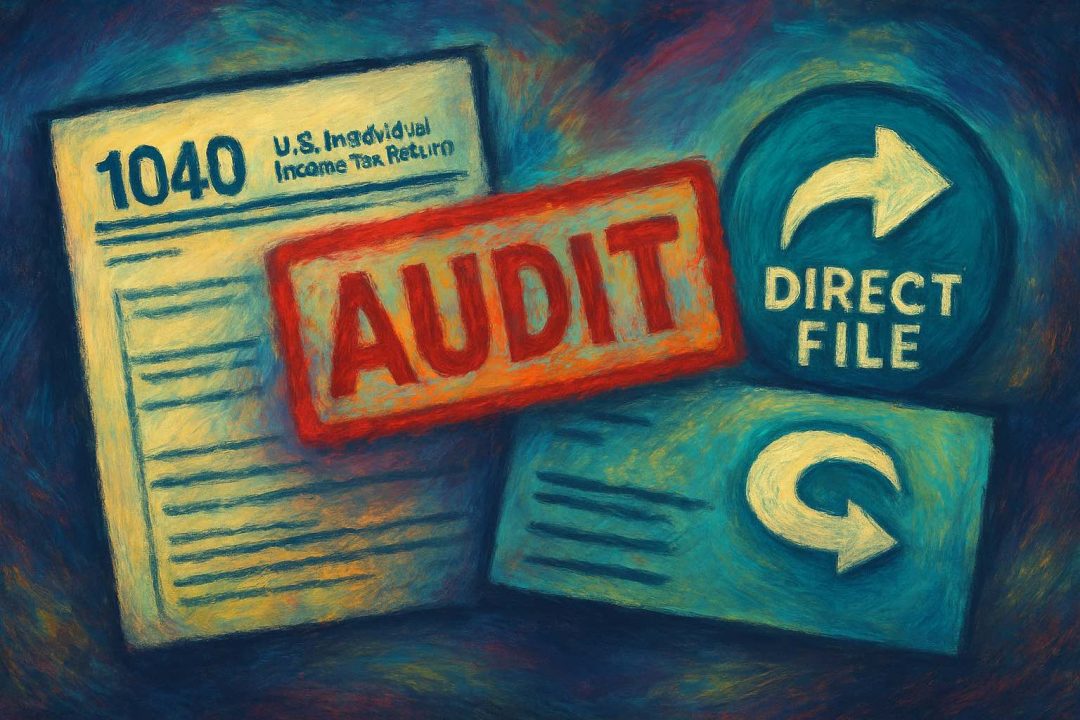
The IRS is scaling up audits in 2025, focusing more attention on middle-income filers and small business owners. At the same time, concerns are rising over the potential end of the agency’s Direct File program, a free tax-filing service that made submitting returns easier and reduced common mistakes.
Taxpayers should prepare for changes that could impact filing ease — and raise audit risks.
IRS audits on the rise: Who is most at risk in 2025?
According to the latest IRS data, audit rates are trending upward in 2025, after years of historically low enforcement. While wealthy individuals earning more than $1 million annually still face the highest audit rates, the agency is increasing reviews of moderate-income earners, especially those:
- Claiming large tax credits, such as the Earned Income Tax Credit (EITC)
- Reporting self-employment or gig economy income
- Filing with complex deductions, including home office or large charitable contributions
The audit rate for filers earning between $75,000 and $500,000 has increased modestly compared to 2024. IRS officials state the focus is on closing the “tax gap” — the difference between taxes owed and taxes paid.
Audit notices typically arrive by mail. The IRS stresses that it does not initiate audits by phone, email, or text.
RELATED: Missed stimulus check claims across the U.S.
Direct File program faces uncertain future
Meanwhile, the IRS’s pilot Direct File program — launched to simplify tax filing and offer a free, government-backed alternative to commercial software — is under threat.
The program, praised by taxpayer advocates in states like Washington, California, and New York, may end unless Congress provides additional funding. Without Direct File, millions could be pushed back to paid tax prep services, where errors and inflated filing costs are more common.
Critics argue that eliminating Direct File could disproportionately harm low- and middle-income taxpayers, increasing mistakes on returns and, by extension, audit risks.
If the program ends, taxpayers may have fewer affordable and transparent options for submitting simple returns.
HELPFUL: IRS – Know Your Rights During an Audit
What taxpayers should do now
As audit rates climb and Direct File’s future remains uncertain, experts recommend:
- Double-checking returns for accuracy, especially when claiming credits or deductions
- Keeping thorough records of income, receipts, and documentation for at least three years
- Using reputable tax software or working with a certified tax preparer
- Monitoring official IRS updates about Direct File and filing options for 2026
Taxpayers concerned about audit risks or changes to filing systems can find more resources directly at irs.gov.
Related Reading
Want to check out more from FL1? Check out these related topics!
- Your Life, Your Money
- Stimulus Check News
- DOGE News
- Food Stamps & SNAP News
- Social Security News
- SSA Cost of Living Adjustment News
- IRS News
- Child Tax Credit News
- Latest from Congress
- Gas Prices
- Medicaid
- Medicare
Stay informed. For the latest breaking news and headlines from across the FL1 National Desk subscribe using the Google pop-up prompt or download the FingerLakes1.com App!

